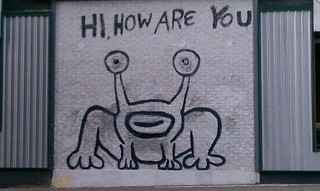
Speaker: Nancy Gibbs, Duke & TRLN
The consortia TRLN began in the 1930’s as a shared collection development strategy for print materials. They share a catalog, print repository, approval vendor database, and they collaborate on large and individual purchases. This was really easy in the print world. As of 2006, only 8% of print books were duplicated across all three schools (Duke, NCSU, & UNC-CH).
Then ebooks arrived. And duplication began to grow exponentially. Many of the collections can’t be lent to the consortia libraries, and as a result, everyone is having to buy copies rather than relying on the shared collections of the past.
Speaker: Michael Zeoli, YBP
YBP has seen a small increase in ebooks purchased by academic libraries, and a much larger decrease in the purchase of print books, despite acquiring Blackwell last year. This is true of the TRLN consoritum as well.
About 20% of the top 24 publishers are not working with PDA or consortia, and about half that do are not doing both. Zeoli tries to meet with publishers and show them the data that it’s in their best interest to make ebooks available at the same time as print, and that they need to also be include in PDA and consortia arrangements.
Consortias want PDA, but not all the content is available. Ebook aggregators have some solutions, but missing the workflow components. Publisher role is focused on content, not workflow. PDA alone for consortia is a disincentive for publishers, it ignores practical integration of appropriate strategies and tools, and it’s a headache for technical staff.
A hybrid model might look like Oxford University Press. There are digital collections, but not everything is available that way, so you need options for single-title purchases through several models. This requires the consortium, the book seller, and the publisher to work together.
Speaker: Rebecca Seger, OUP
The publishers see many challenges, not the least of which is the continued reliance on print books in the humanities and social sciences, although there is a demand for both formats. Platforms are not set up to enable sharing of ebooks, and would require a significant investment in time and resources to implement.
They have done a pilot program with MARLI to provide access to both the OUP platform and the books they do not host but make available through eBrary. [Sorry — not sure how this turned out — got distracted by a work email query. They’ll be presenting results at Charleston.]
Questions:
How do MARLI institutions represent access for the one copy housed at NYU? Can download through Oxford site. YBP can provide them. The challenge is for the books that appear on eBrary a month later, so they are using a match number to connect the new URL with the old record.
And more questions. I keep zoning out during this part of the presentations. Sorry.

Just one comment. YBP is in fact seeing a *dramatic* increase in library purchasing f ebooks – it matches the decline in print sales. Sorry not to have made that point clear in the presentation – it is an important one. Michael Zeoli